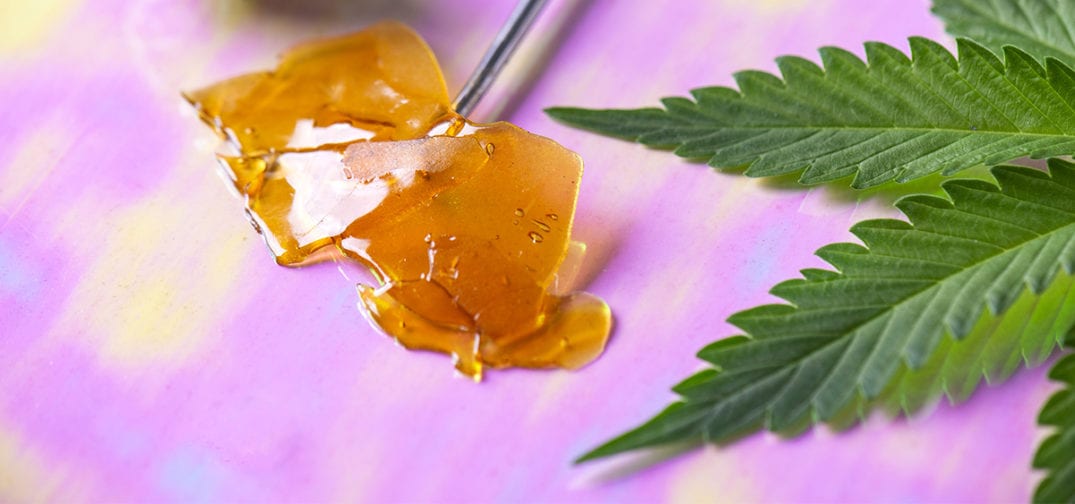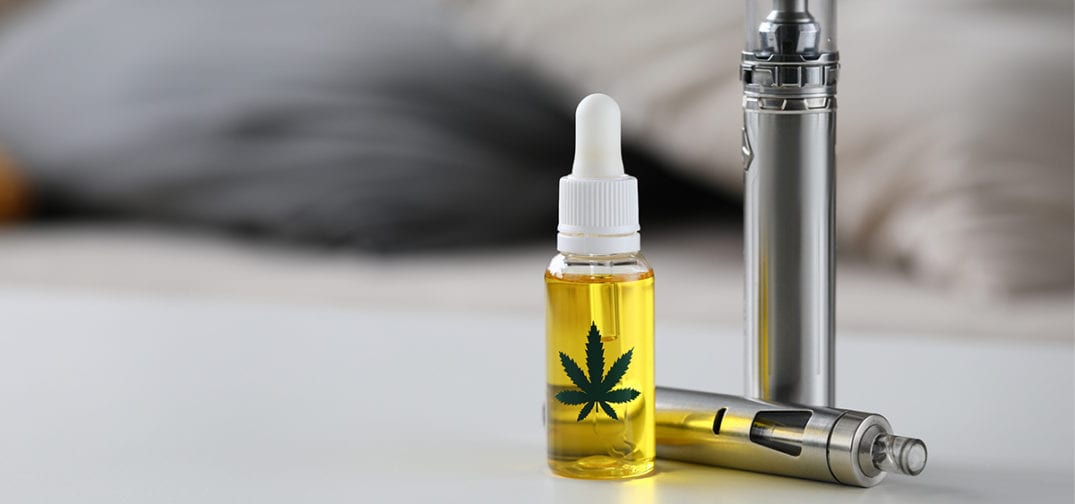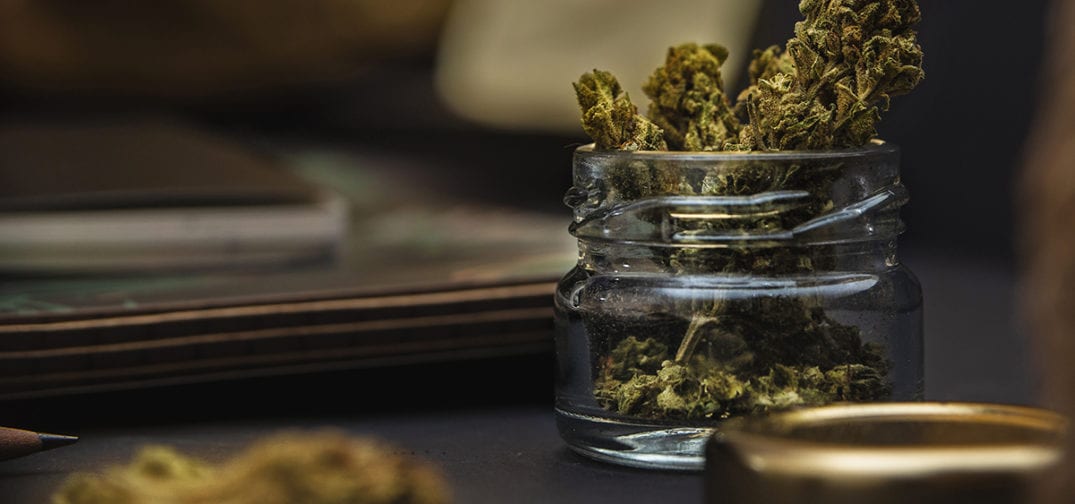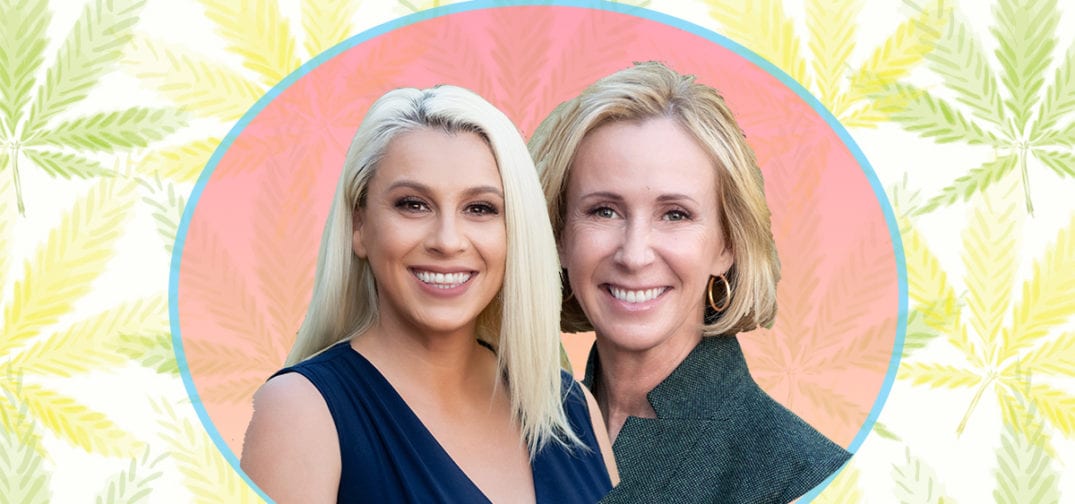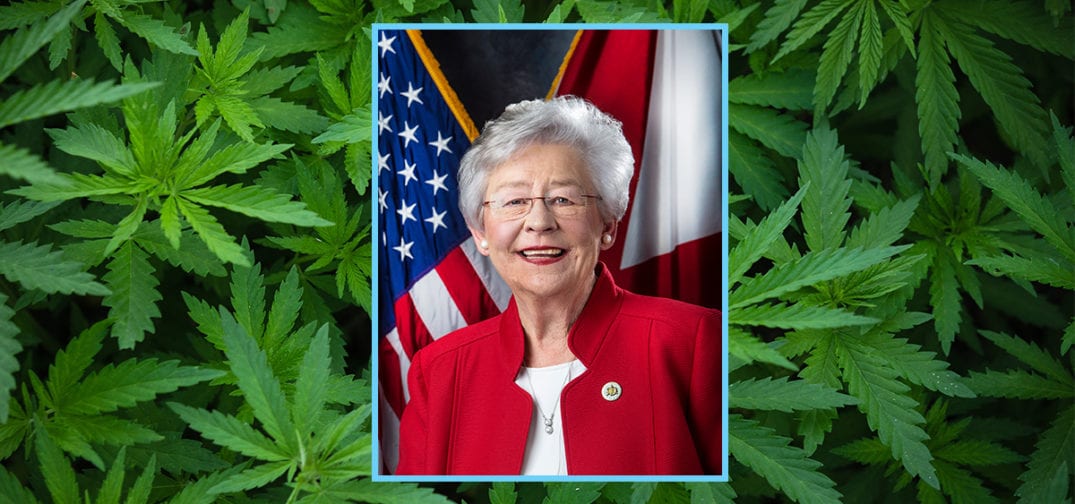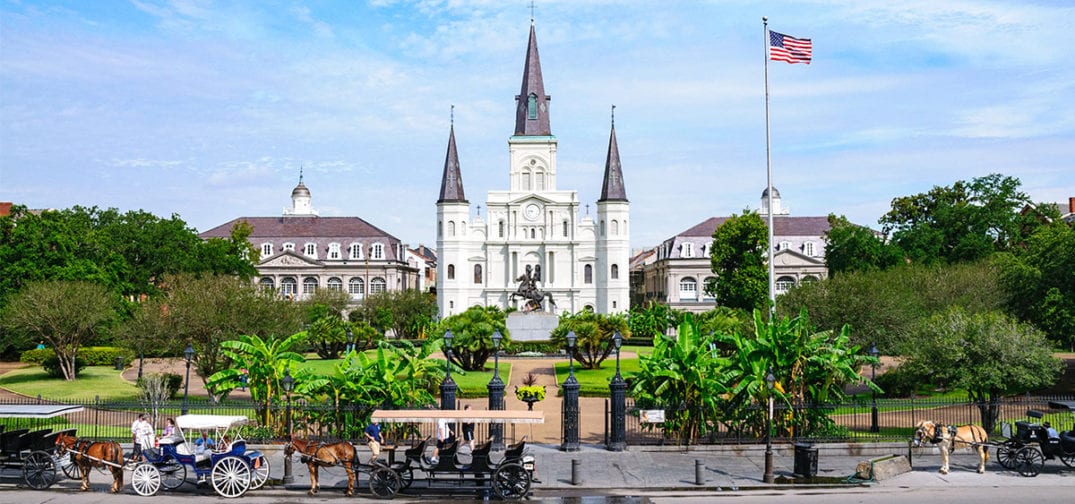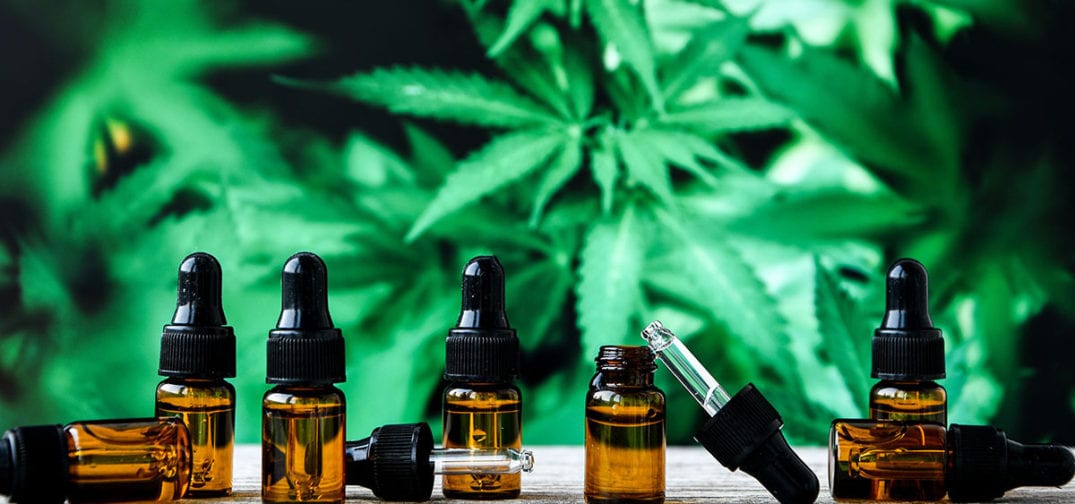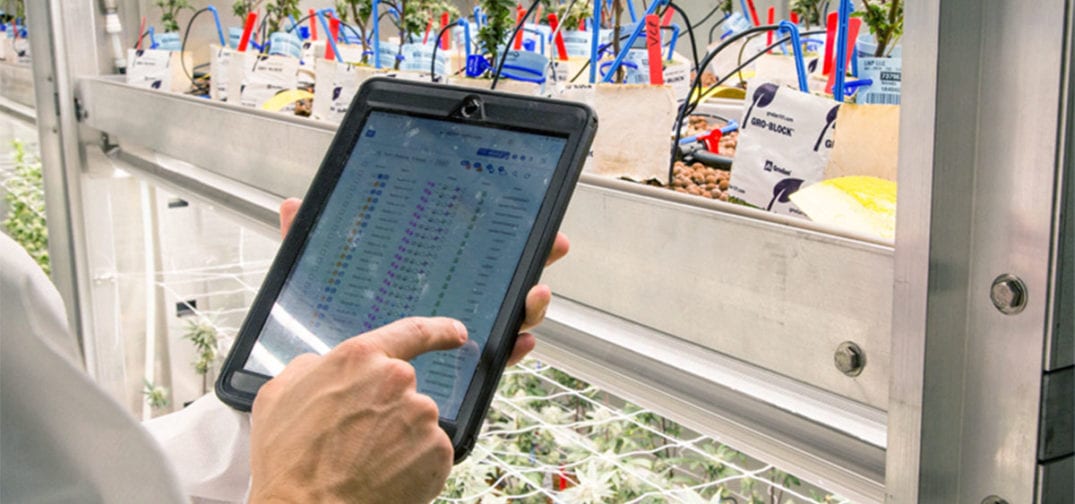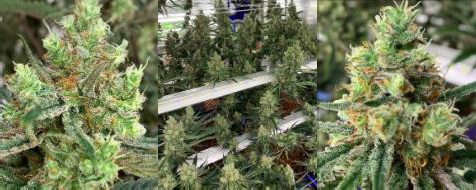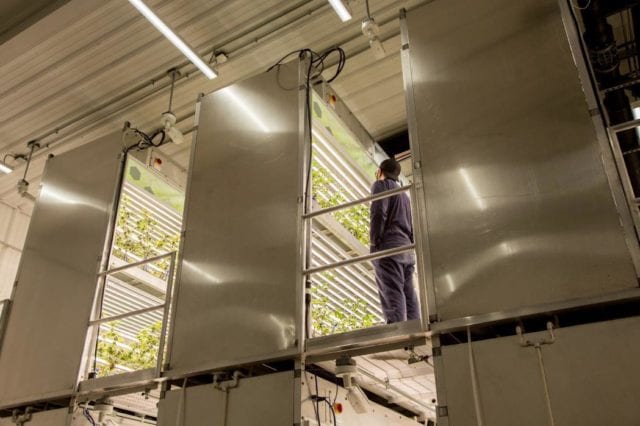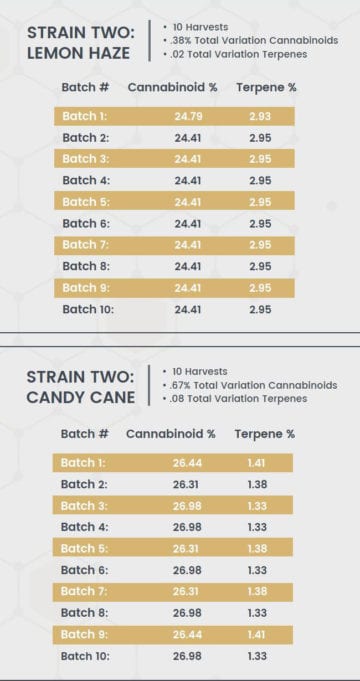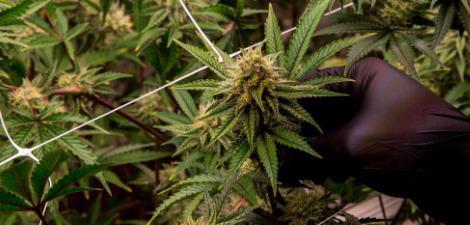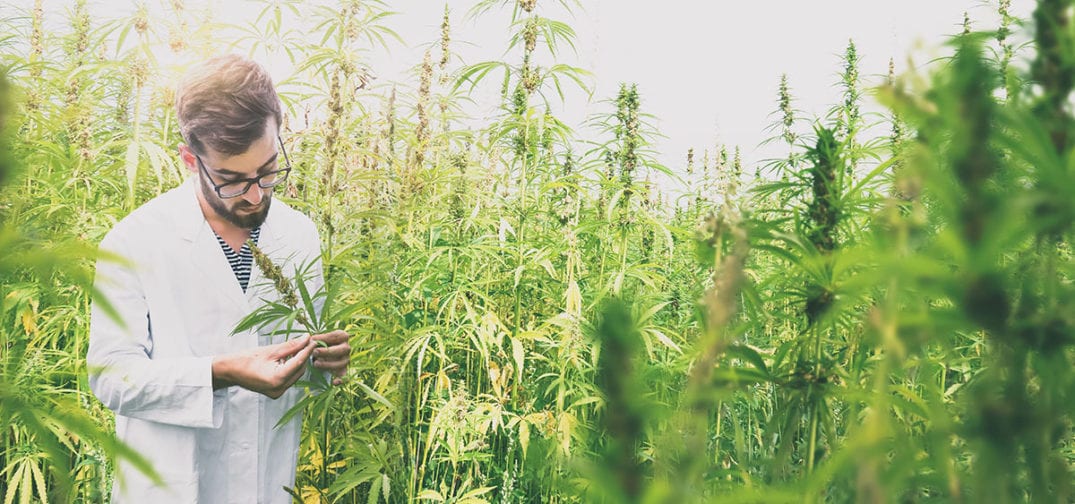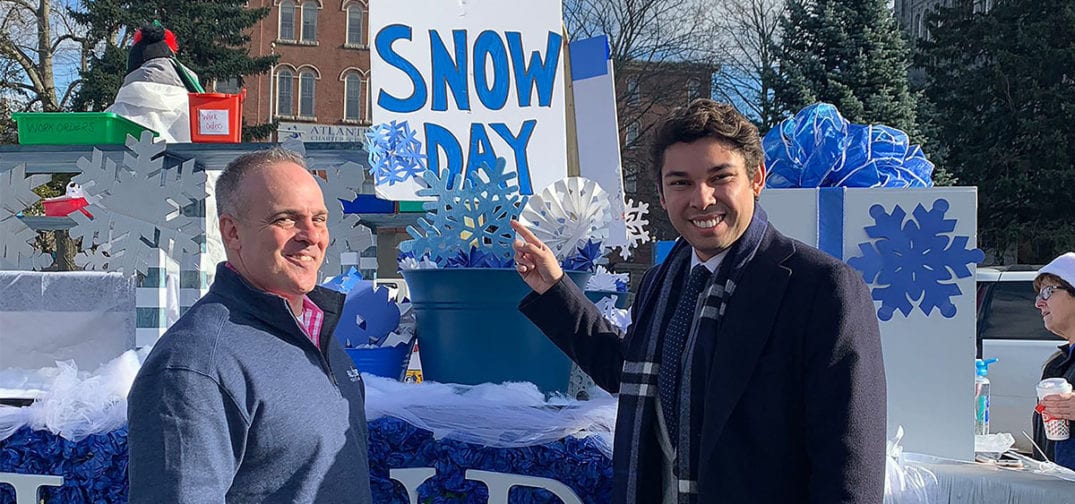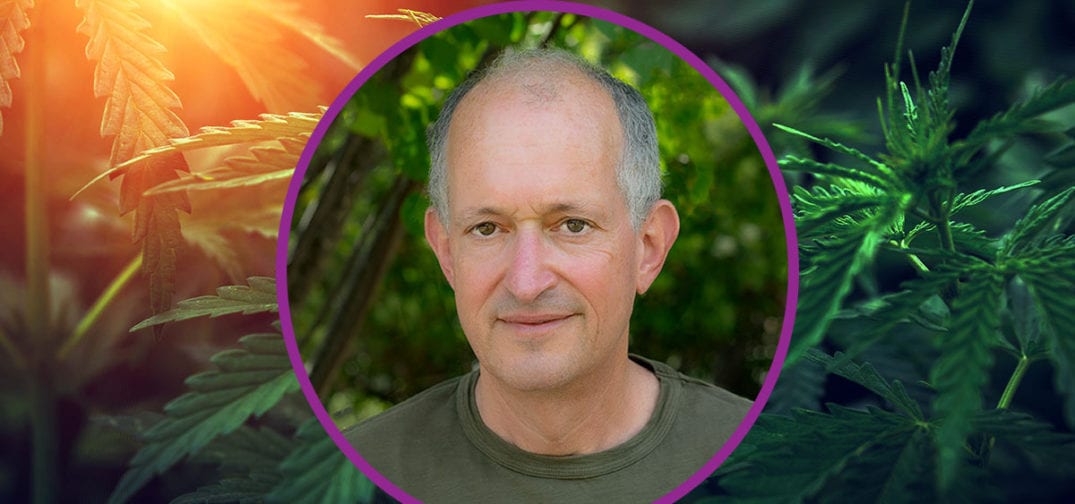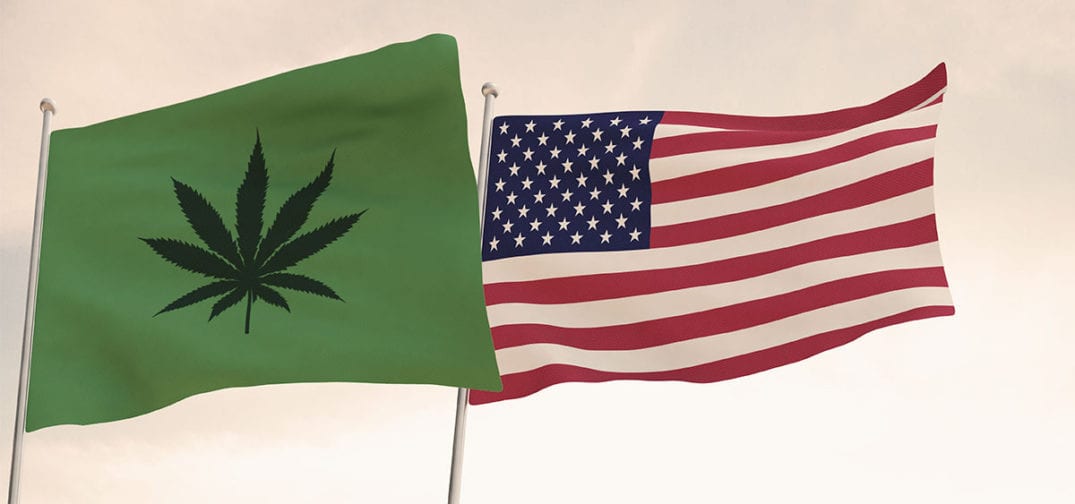With Arizona’s recent switch to an adult-use market, cannabis enthusiasts, entrepreneurs, and investors are scrambling to learn as much as possible about the state’s new cannabis opportunities. The Open Dør is an Arizona-based cannabis dispensary franchise that specializes in providing a comfort-focused and modern retail experience.
In this podcast interview, our host TG Branfalt is joined by The Open Dør’s CEO Kathryn Blackwell and COO Chelsea Mulligan to discuss their fateful meeting, translating mainstream franchising experience to the cannabis industry, and The Open Dør’s emphasis on providing a clean, welcoming, and vibrant retail experience. They also discuss more broadly the advantages for entrepreneurs who choose to work with a cannabis dispensary franchise, the power of entrepreneurial determination, their advice for cannabis industry startups, and more!
You can listen to the interview below or through your favorite podcast listening platform, or scroll down to read a full transcript.
Listen to the podcast:
Read the transcript:
Commercial: Ganjapreneur is excited to announce the launch of our new YouTube series: The Fresh Cut, hosted by Cara Wietstock.
Cara Wietstock: Hi, I’m Cara Wietstock, host of The Fresh Cut by Ganjapreneur. In this interview series, we get straight to the source and speak with the real people working in the industry. In our first episode, I spend time with Nancy Southern, whose current mission is to educate seniors on cannabinoid medicine. She lets us know how to facilitate a comfortable retail setting for older adults and provides product recommendations directly from her own experience. Catch this and all future episodes on YouTube.
TG Branfalt: Hey there, I’m your host TG Branfalt and thank you for listening to the ganjapreneur.com podcast, where we try to bring you actionable information and normalize cannabis through the stories of ganjapreneurs, activists and industry stakeholders. Today I’m joined by Open Dør co-founders: Kathryn Blackwell, who serves as CEO and as a former co-founder of the Kahala Corp, an international QSR business with brands such as Cold Stone Creamery, and Blimpie Subs and Salads. And Chelsea Mulligan, the dispensary whisperer and COO who has eight years of experience in the cannabis industry, operations and compliance space. Open Dør provides a modern cannabis retail model with a turnkey approval through its franchising model. How are you doing this afternoon, ladies?
Kathryn Blackwell: Wonderful. Thank you for having us.
Chelsea Mulligan: Very fantastic. Thank you, we’re so excited to be here.
TG Branfalt: It’s a pleasure. We have a lot to discuss. You guys come from Arizona, which is newly legalized and they got there faster than anyone else, which we’re going to talk about. But before we get to Open Dør and before we get to Arizona, let’s talk about you guys. What’s your background and how did you end up in the cannabis space?
Kathryn Blackwell: Well, I spent 25 years in quick service restaurants franchising space, building multiple brands like you mentioned, Cold Stone Creamery and Blimpie subs and salads were a few of our brands. We actually took a couple of them internationally. So I have a little bit of experience, not only domestically, but also internationally with the franchising model.
With all of that experience, I saw this emerging industry in cannabis and realized that there was definitely a need for the franchising model in the dispensary space. We saw a lot of variances in really what customers could expect when they walked into a dispensary. They were either walking into what may seem like a medical clinic or more of that traditional head shop. We wanted to build something that customers could know they were walking into a true retail experience and get the education and know that they had somebody to teach them and help them find the products that they were truly looking for to serve their needs.
TG Branfalt: Interesting. How about you, Chelsea? What brought you to this industry?
Chelsea Mulligan: So I’ve been a consumer for about 15 years. I’m a little bit over that and it helped me in so many ways medically and I happened to find an ad for a space to start in management. And I realized very quickly that my experience with like operations, SOPs, mergers and acquisitions was going to play a very big role and then kind of went out on my own and created my own consultant firm to be able to help them SOP’s and policies and procedures, employee training, and all of that.
TG Branfalt: How did you two find each other?
Kathryn Blackwell: Through our other partner, Brian McLaren. I met Brian at an event that was not cannabis-related at all. And once I found out that he was already in the cannabis industry with real estate and zoning and permitting, I tapped him on the shoulder and said, I’ve got this idea. And he really liked it and said, “You’ve got to meet Chelsea Mulligan.” This is, I guess… Here we are.
TG Branfalt: When you started doing this dispensary whisperer, this sort of consulting, what were some of the similarities from your previous roles doing SOP’s and that sort of thing Chelsea?
Chelsea Mulligan: So, just creating standard operating procedures. A lot of people think that just because it’s cannabis, you have to reinvent the wheel or it’s something new. In reality, it’s retail, employee training and doing things the same way, the most efficient way to be profitable. Keep your employees, make customers happy, all of that. That translates from clothing through the gym world, where I come from, as well as the chiropractic world where I come from. So that’s what I think works.
TG Branfalt: So Kathryn, tell me about migrating from a more traditional franchise space to the cannabis industry. What’s the learning curve there?
Kathryn Blackwell: Oh the learning curve is incredibly difficult. Well, I should say it’s very steep. The industry is so highly regulated as you know, and so many nuances that may not fall into a traditional franchise space or traditional business. But knowing that, the industry is still growing and still maturing. There were a lot of instances like Chelsea just mentioned, you don’t have to reinvent the wheel. So bringing some of those traditional franchise tools and tactics and systems into the industry, it seems like it’s been very welcomed. And people are really appreciating the value that, that can bring.
TG Branfalt: For people who might not be aware… They understand the franchising model; McDonald’s and this idea. Can you explain how this model works in the cannabis space and how it takes the pain out of building a cannabusiness?
Kathryn Blackwell: Well again, it goes back to that learning curve and that trial and error. So we’ve built the dispensary prototype with all of the architectural plans, all the security systems that are in place, all of the decor elements, we have vendors already selected. We’ve got insurance companies who are lined up, ready to go. So you are 10 steps ahead, if not more, when you join a franchise system and all of those vendors are fully vetted. We’ve looked at their backgrounds and who their existing customers are. So you’ve got this playbook just laid out in front of you and ready to go. So you’re not wasting that time. You’re just bypassing the learning curve and really 10 steps ahead of any of your competitors in the market by having all of this already laid out.
TG Branfalt: What’s your take on that. Chelsea? You’ve been operating in this space for so long, I’m sure you’ve seen a plethora of different dispensary models. Why were you drawn to this?
Chelsea Mulligan: So for me, like I said, not only is the word standard operating just means standardized. I do think there has to be some changing per market. So we do work some of those local fields into our designs, as well as like the products that we choose. But for me, just like we love Starbucks, I know that I can go into Starbucks when I’m in Florida traveling with my kid and get the same thing. While they may not get to be able to get the same brownies in Arizona that they can get in New York, they would then be able to have the same quality.
That vendor has been vetted for maybe how they use their extractions going into that edible or what vape pen product they use and where they buy it from. So that is, as soon as I heard Kathy’s idea about franchising, I’m like, “That’s brilliant.” If we create the ultimate dispensary model, it can be duplicated over and over again. And also it gives the owner empowerment. We want enough but we don’t want to own their license. That is never our goal. It will never be our goal. So to be able to give them the empowerment to be 10 to 20 steps ahead, have less risk, skip some obstacles others are going to play at. And I think it just all fits for me.
Kathryn Blackwell: And if I could chime in what Chelsea was just saying as well. It’s not only the setup and helping them pick out the quality of products that the brand would require, and that the customer would expect from our brand. But we’re there to support these operators as well. We don’t just sell it to them and get them open and say, “See you later.” We’re checking in on them, we’re coming in and helping make sure that we’re walking through their compliance standards before they get inspected by their local authority. So we’re helping them along the way. So as I like to say, “They’re in business for themselves, but not by themselves.” So that’s another key element of that franchise model.
TG Branfalt: So obviously Arizona’s in the very early stages of recreational legalization. Obviously, you’re going to get a lot more vendors over the course of the next year, two years certainly. Talk to me about Arizona’s reforms and is there anything unique about the state’s legalization law?
Chelsea Mulligan: So I would say the thing that is most unique about it is, every other state that has gone recreational has opened up a ton of new licenses for new players to come in or existing players to apply for new licensing. Here it was a little bit different, while we will have some applications for like more rural cities or counties. All the current license holders were able to apply and be approved very quickly to then be both medical and recreational, which gave the proven dispensary models, the ability to just flip very quickly. And that’s why the application process went so quick.
But then they’re also having 26 social equity licenses. Which, to be honest, we’re super excited about it at The Open Dør because those are the people that may not have all of the resources that the people coming in with a lot of capital do. And we want to handhold, we want to help you through every single part, ask all the questions. So we’re really excited about those 26, because that’s one of our… Not our ideal franchisee, because anyone is our ideal franchisee, but really giving a leg up to those people that this business was built on as a basis.
TG Branfalt: And you mentioned that this happened very quickly that the current operators were able to get licensed. I mean, for example, Virginia‘s on the verge of passing legalization, but they’re not going to open up a market until 2024. It’s taken from ballot box, to open we’re talking November, October. We’re talking just six months, something like that. So for your company, what impact does this have on the franchise model? The fact that this happened so quickly, is there any impact?
Chelsea Mulligan: I don’t know that it’s a huge impact for moving so quickly. I think it brought some broader awareness to the cannabis industry and probably some credibility. Just that people are really looking for these types of products and wanting to get them without having to go through the process of getting a license or getting a medical card and all of that. The interest in the industry and this amazing plant that can help so many different people. I think people are looking for a holistic and a more naturopathic remedy for maybe some of those chemicals that they’ve been taking in pills or prescriptions that they’ve been taking forever. And if they can do something naturally to help those ease their pain of joints or treatment, that just shows me that’s their real interest there. And you have that much interest from the community and from the general public, that’s definitely a good sign for a retail environment.
TG Branfalt: Can you tell me what your conversations have been like with people that have shown interest in your model, or just operators that you’ve talked to in the time that it passed up until now. Can you give me some insight into how operators are thinking currently?
Kathryn Blackwell: This is Kathy. I can just jump in a little bit on the conversations that we’ve had over the last year. And then I would love to get Chelsea’s feedback on current operators or current license holders, I think it would be valuable too. We’ve talked to a broad range of people, either individual people who are seeking out a license and just love the idea, they’ve never been in the retail space before. Like some of these social equity license holders might be. And the idea that someone can help them through, not only the cannabis, navigating the cannabis industry and all those regulations, but navigating just the retail environment and a general business operation has been really, really interesting.
On the flip side, we’ve had conversations with some larger organizations, venture capital firms who have an equity position in multiple licenses, but have only used those licenses in the cultivation piece or in the processing side, because they just didn’t want to get into retail or didn’t know how to get into retail, or just thought it was going to be too cumbersome. So the conversation that they can even increase the value of that license by having a retail dispensary addition to their operation. They’re seeing how that can increase the value of their ownership. So really opposite ends of the spectrum, but just showing you how broad the interest is and the value, but I’m sure Chelsea could speak to some of these existing license holders and really what some of the struggles that they’ve gone through and why this could be valuable.
Chelsea Mulligan: So I can speak to current license holders. So I’m currently the director of operations for two licenses in Arizona called Hana Meds. And navigating this space with DHS, rolling this out so quickly, getting the application prepared, preparing our staff. All of us kind of anticipated a little bit lengthy, more of a time to order child-resistant exit bags and hire some extra people. I think probably the biggest hurdle so far has been that with our dispensaries outside of Phoenix proper. Most of Arizona was bound by a 2000 square foot rule for all retails. Just recently, Phoenix made it larger to 5,000 square feet. So dispensaries within Phoenix are now able to open up a little bit more and be able to, well the ones that have the room, are able to see all of those recreational customers that are coming through.
Our struggle has been, personally in our license, is just navigating how to manage a large influx of people. Not have it be chaotic, abide by social distancing because COVID is still a thing. And that’s, I think has been the biggest hurdle, but here’s the thing. If you’re in cannabis, that means you enjoy change. It means you enjoy learning. If you’re not uncomfortable, you’re not growing, you’re not learning.
So it’s been real uncomfortable in Arizona for about 45 days, especially because testing rolled out here and that has extremely effected supply and wait times. We’re running almost anywhere from four to eight weeks to get testing back on batches. So that has been a huge hurdle, but I think, the state is learning from what they’ve rolled out and we’re learning from how we do things on the industry side. And the biggest thing for me is I think if you could create a relationship between the two that has really great communication, that would have made this rollout exponentially better. But for next time, right?
TG Branfalt: I remember writing stories, it was like one day they may come next week and then the next week it’s like, they’re here. And I was just blown away by that. You touched on something about the square footage issues and something that I think we don’t talk a lot about on the show that Kathryn you brought up at the top was zoning in the cannabis space. And every state has different rules. Talk to me about the zoning issues and the barriers that this places on the cannabis industry and what are some of the best practices for operators to ensure that they are biding by those sometimes complex rules?
Kathryn Blackwell: Right. So the zoning and permitting is not only different state, by state, but city by city, even local communities it can vary municipalities and cities and towns. It all can vary so differently so my suggestion would be, don’t go it alone. Find someone who can help you and navigate that process, who has the experience to go in and do it right from the beginning. You don’t want to get through, even halfway through the process and find out that you don’t have the proper zoning that would just… Such a waste of time and exponentially more headaches.
TG Branfalt: How does that work with the… I’m sorry to cut you off, but how does that work with a franchise model where you have the footprint built and you have to apply that footprint to Scottsdale and then in Phoenix?
Kathryn Blackwell: Right, right. And that all goes back to finding somebody likes Zone Properties, our partner, who’s the expert in this space. And it only works in the cannabis industry. So even if we have to go to a city council meeting and try to get a zoning change or get a variance or something, they already have those relationships and they know exactly how to ask for them and how to work through them. So that is part of the service that with that is part of the franchise, is connecting these operators with all of the resources that they need. And the zoning and permitting would be one of them.
TG Branfalt: Was that something you experienced too Chelsea in your role as a consultant, a lot of these sort of zoning issues come up?
Chelsea Mulligan: So I didn’t personally handle that. I’m definitely more on the operations side, but that’s how Brian and I had met previously, is a lot of his work within zoning. So she said that it changes city to city, state to state, and a lot of times city and state don’t match. So Brian and Zone Properties are responsible for getting the zoning done in Tempe and even like getting the canopy space. What’s the word I’m looking for, not elongated, but increased. Like you used to only have 25,000 square foot of canopy in the city of Tempe and then they expanded that. Whereas, the state doesn’t put a cap on it. So those are the little things of zoning when you’re choosing a building or choosing a city to be in, that having an expert like Brian and Zone Properties, just again, gives you five steps to 10 steps ahead.
TG Branfalt: I’m a weird guy in that I like getting into the details of zoning laws and because the ideas of variance and maybe I’m just a nerd in that regard, but there’s definitely something I think, fascinating to these little nuanced rules. Chelsea on your website you talk about setting realistic expectations and parameters for operators. What are those expectations and parameters in your estimation? I think it’s a very striking term that you use because I think it speaks to your attitude towards this industry.
Chelsea Mulligan: So I think one of the biggest parameters I set would be making sure that the license holders and the managers understand compliance. Also, the entry-level employees, but top down. So compliance is the biggest parameter I set. As far as realistic expectations, it’s if you don’t train your employee and you don’t invest in them, then you don’t get to expect this. So you need to be realistic in what you’re willing to give, what you’re willing to put into your employees, into your dispensary.
Like, I’m usually very, very humble, but I will be honest, we’ve created a beautiful dispensary model. And I think that, that’s where this is going though the more smoke shop feel, more just closet feel that came in 2010 to 2015. It is going by the wayside because we are starting to move into more mainstream. This is just retail and it’s expected. So I think setting a realistic expectation of, if you’re not going to put in that effort to create a brand and a feel and a customer experience you can’t then expect to be ahead of the competition and set yourself apart. So those are some of the expectations I set.
TG Branfalt: How would you, Kathryn, how would you describe maybe in one word, your model or what’s your favorite part of what you guys have designed?
Kathryn Blackwell: The dispensary itself or…?
TG Branfalt: Yeah, the dispensary itself.
Kathryn Blackwell: Oh it just feels like you’re walking into a true retail experience, the lighting and the way the products are displayed and truly merchandised for people to be able to find what they need or just explore what kind of products are out there. It’s streamlined, we’ve got great salespeople that will be on the floor. We’ve really built in a huge educational platform that all of the team members will be required to take. So when we say all are welcome at The Open Dør, it’s truly from the heart.
We want anyone who’s interested in the product if they’ve never tried cannabis or never experienced it before, but they really want to learn maybe how it can help them or to the cannabis user who knows what they like and knows what they want. They can come in and explore other products, but it’s truly a retail experience. Like I said, the lighting and the merchandising and the streamlined flow of getting customers in and out and not feeling rushed, but getting the help that they need. So it’s really just taking it up to a different level, the next level up. Which I think is what as Chelsea mentioned, it’s what consumers are expecting these days. If you’re going to come face to face now, not just ordering online, which we will have online ordering as well. But if you do want to come in, they’re expecting more than a closet and somebody grumpy behind the counter.
TG Branfalt: I managed head shops for a long time, I was sometimes that grumpy guy behind the counter at the shop, so that is true. Chelsea, what about you, is there one word that you might use to describe the dispensary or sort of your favorite part about what you guys came up with?
Chelsea Mulligan: So my favorite part, I think is also the training model Kathy was talking about. The platform we’re using is amazing, the training and the ongoing training. I’m a big believer in continuing education. I think that should be a thing for all budtenders and all employees that are interacting with the customer. Honestly, but my ultimate favorite thing personally for me is that I’ve been helping clients for years, SOP’s and create their dream. And I’m not saying they hindered me at all, but to not have a barrier of it being someone else’s dream and me be able to put everything I’ve ever envisioned would be the perfect dispensary model thing idea to make an ultimate dispensary model. I think that’s my personally favorite thing. It’s kind of like my dreams coming true in front of me.
TG Branfalt: You guys seem like you have formed this really excellent partnership. And it’s great to see you guys separate, but talking about the same thing. You can feel the energy that you both have for this project. What does the future of the industry look like in Arizona? Do you think that it’s going to be mostly flower, are you expecting a lot of edibles? Because, because Leafly just had a report and in each state, we do see trends where flower’s been, in the states that have legalized longer, concentrates have taken over flower. Edibles have taken over in some other states. So what do you guys see as the future of the industry?
Chelsea Mulligan: So I think as far as the products and what is purchased and how it works out recreationally, I think we’ll see an uptick in flower obviously and vape pins. Not as much concentrates because they’re not as easy maneuvered. And I’m not saying they’re traveling with the concentrate, but it’s usually people that are traveling or on the go. So they’re not going to tend to dab and have the torch and all of that. But I think we will eventually mature after recreational is around for a couple of years, the same way the medical market did, that concentrates will become a very large part. In the medical market, concentrates are almost 30% of your business. Five years ago, it was maybe 10%. So I think that recreation, the same thing will happen.
But on an overarching view, I think Arizona is just like the entire country. It’s the tip of the iceberg. Like, those memes, I was telling Kathy yesterday, those memes that you see. It’s like, the title is here and it’s a glacier, but then all the stuff is underneath that you don’t see that. I feel like that is cannabis in general, whether it’s Arizona, North Carolina or the federal government. We’ve only seen the beginning.
TG Branfalt: And what about for you, Kathryn? What is your vision for the future of the industry?
Kathryn Blackwell: Oh gosh, I hope we can legalize it sometime soon for so many different reasons. A) for people to be able to explore more. This amazing plant and everything that it can do, but also so that the current operators and any operators going forward have safe banking and the finance rules are just nuts right now. And it just doesn’t seem fair to a lot of these operators. I’m still learning a lot about it, but the fact that the industry in general can be turned off by a vendor, just with the flip of a switch. And then they may not have health insurance. They may not have a bank. They may not have the business insurance, even payroll services and email platforms, if you believe it or not. We’ll cut out an industry. So I’m hoping that we can legalize the industry that will only help it grow and get better and stronger and safer.
TG Branfalt: It had to have been. Was it shocking to you coming from a traditional background industry to the onerous financial rules in the space? Was it surprising?
Kathryn Blackwell: Oh, certainly. Chelsea started telling me some stories about just banks that would accept a deposit and the process of trying to make those deposits just seemed scary. It just seems scary to me. And then coming from a small business that would accept credit cards. I know that the theft and the danger that we had in just a small business with the limited amount of cash that we had on hand. I can’t imagine what some of these dispensary owners and operators have to deal with and what they’re dealing with to have that much cash on hand. So for safety sake, I’m really hoping that we see change in that respect.
TG Branfalt: Chelsea could you speak to that a little bit? I know in California, Colorado, there’s been some agreements made between small credit unions, that sort of thing for the industry or larger cadres’ that have formed to create these little communities, financial institution-ish sort of things. Can you talk to me about what’s going on with regard to any sort of reforms in Arizona with regard to cannabis cash?
Chelsea Mulligan: So, there’s not much as far as reforms. We do have a bank here that has, I think it’s either three to five branches that will accept cannabis businesses. There’s obviously a very large surcharge to have an account with them because you’re a cannabis business. I actually remember before they officially took on cannabis businesses back in like 2014, they stopped taking money from cannabis at first because they were like, “We have to order two more cash counting machines and we need to hire like two or three more people, you guys are making anywhere from 40,000 to $80,000 a day and it’s all cash. We are not used to this.” So the fact that now we’ve gotten to a place that we can play a larger surcharge and most licenses here can have banking.
And I say most because not all do. And we do have to have it picked up by a secured firm, and everything, we’re not allowed to go deposit it anymore. So we’re making forward movement, but we’re not there yet. We got a long ways to go with the federal government to make that a thing. And like Kathy, I hope that happens sooner rather than later. I remember being a mom in 2013 and driving around with a lot of cash in my car to multiple banks because that was what the option was, and I’m grateful that now that’s not a thing, but it is a thing. And it probably, if it was here at the beginning of our industry, that means other states coming online, that means it’s happening for them too. So just because we don’t experience it here anymore, doesn’t mean it’s not a reality for other people.
TG Branfalt: Thank you so much for sharing that. It’s good that you actually have one bank because, in a lot of states, they don’t even have that one. So wrapping up here, what advice would each of you have, drawing from your own experiences, for entrepreneurs who are looking to get into either the cannabis state space at large or the cannabis space in Arizona? What’s your advice for them?
Kathryn Blackwell: Well, this is Kathy and I guess I would just say be prepared with your plan, know your numbers and know what your costs are and all of that. And don’t give up and keep plugging along, stay informed.
TG Branfalt: And what about from you Chelsea?
Chelsea Mulligan: Mine would be along the lines of Kathy’s, “Don’t give up, believe in yourself.” The old adage of, “If you don’t believe in yourself, nobody else will” is so true, especially in cannabis. And I think that having a backup plan and a backup plan to that backup plan is a good idea. If you know you have a fabulous idea and it works, don’t give up, believe in yourself and make it a thing. I truly believe that all of us have a little bit of entrepreneurial spirit in us and we should play on that whenever we can. And I think my last piece of advice is you can always ask for help from The Open Dør.
TG Branfalt: If people want to ask for help from The Open Dør, where can they find out more about your company and you guys personally?
Kathryn Blackwell: Sure. Well, our website is theopendor.com. It’s only one O, D-O-R.com or feel free to reach out either through our contact page there on the website, or follow us on social media @theopendor on Instagram, or obviously I’m on LinkedIn. So reach out to me there too.
Chelsea Mulligan: We’re both on LinkedIn. You can follow me on Instagram, @thedispensarywhisperer, follow The Open Dør and be excited for our first location.
TG Branfalt: It’s a great moniker, by the way, the dispensary whisperer it’s wonderful.
Chelsea Mulligan: I had a client, Doug Mia. He was like, “I heard from somebody else that you’re the dispensary whisperer and I need to hire you.” And I was like, “I love that name.”
TG Branfalt: When I was doing a little research and I saw that. I giggled very, very much. Thank you for that giggle.
Kathryn Blackwell: She’s earned it.
TG Branfalt: I think so. That’s been The Open Dør co-founders Kathryn Blackwell who serves as CEO and as a former co-founder of Kahala Corp, an international quick-service restaurant business with brands, such as Cold Stone Creamery, Blimpie Subs and Salads, and Chelsea Mulligan the dispensary whisperer and COO. She has eight years of experience in the cannabis industry, operation and compliance sector. And Open Dør provides a modern cannabis retail model with a turnkey approval through its franchising model. Thank you so much ladies, for being on the show. And I look forward to one day seeing an Open Dør dispensary in all of its glory. And I wish you guys the best of luck in these early days of Arizona legalization. Thank you so much.
Chelsea Mulligan: Thank you so much. Pleasure being here.
Kathryn Blackwell: Thank you.
TG Branfalt: You can find more episodes of the ganjapreneur.com podcast in the podcast section of ganjapreneur.com on Spotify and in the Apple iTunes store on the ganjapreneur.com website, you will find the latest cannabis news and cannabis jobs updated daily. Along with transcripts of this podcast, you can also download the ganjapreneur.com app in iTunes and Google play. This episode was engineered by Trim Media House. I’ve been your host TG Branfalt.



